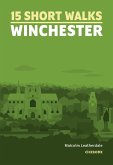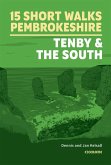Unpromisingly - for a walking book -
Desire Paths begins on a hospital gurney as the author prepares for open heart surgery. Thereafter, it dances back and forth in place and time between an array of obscurely connected walks that Roy has undertaken over the years. Among the book's many characters and diversions are Wetherspoons, Capt. Picard, the Navy Cut sailor, the buried 'Spirit of Brighton', Wendy Craig, Harrods, Buddhism's Six Realms of Desire, 'Things to Do...' tourist brochures, Argleton redux, the abyss, strip-lynchets, punk residues, Milton Keynes, multiple identities and an inkling of what the future may hold for thoughtful walkers. Each chapter starts with a quote from Phil Smith's Mythogeography, specifically from the 'Legend' given in that book - 'legend' as in a set of definitions of symbols used on maps to define landscape features. Roy uses these symbols to organise the book. The main body of each chapter is an account of a walking journey he has done. These are not chronological: structuring the book around the mythogeography Legend has (dis)organised the walks into a sequence that wanders in and out of time. Towards the end of each chapter, Roy reflects on a Landscape Feature that corresponds to the Legend - exploring the workability (or playability) of mythogeographical concepts and illustrating how they have manifested in his own walking. Finally, the Jump Over the Back Fence notes in each chapter suggest further actual walks which readers could make.
Dieser Download kann aus rechtlichen Gründen nur mit Rechnungsadresse in A, B, BG, CY, CZ, D, DK, EW, E, FIN, F, GR, H, IRL, I, LT, L, LR, M, NL, PL, P, R, S, SLO, SK ausgeliefert werden.









